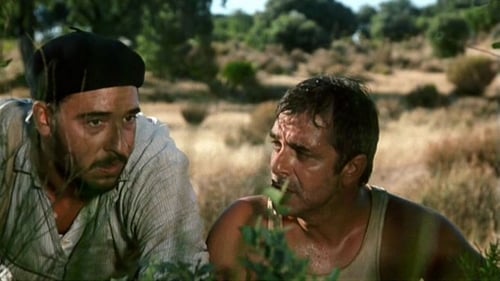Luís Filipe Costa
Nascimento : 1936-03-18, Lisboa, Portugal
Morte : 2020-07-21

Have you ever had a crush on the man frisking you at the airport? What would you do to get strip searched in that back room without being sent to jail? Frequent Traveler brilliantly and silently explores the answer to this question.

Self (radio reporter) (voice)
The operational commander of the "Captains Movement", describes and recreates a quarter of century later the crucial 24 hours of April 25, 1974, that would topple the Portuguese government and start a democratic regime in Portugal - since another military coup, May 28, 1926, installed a one-party dictatorship there. The scenes in the claustrophobic operation room are recreated, with him alone and a few voices.

Writer
Set during the Estado Novo dictatorship, in the night of April 24, Pedro hears that the political police, PIDE, assaulted his house. Fearing of what his fate may be, Pedro runs, looking for a place to hide.

Director
Set during the Estado Novo dictatorship, in the night of April 24, Pedro hears that the political police, PIDE, assaulted his house. Fearing of what his fate may be, Pedro runs, looking for a place to hide.

Radio Newscaster (voice)
Em 1962 em Trás os Montes, uma greve de mineiros começa por ser reprimida pela GNR. Mais tarde a PIDE inicia investigações com o objectivo de deter Daniel, um mineiro que apenas tentava lutar pela melhoria das vergonhosas condições de trabalho, mas que a polícia política de Salazar julga estar a ser manipulado e instrumentalizado por forças políticas contrárias ao regime. Daniel tenta, na companhia de um cunhado, fugir para França mas o cerco de uma implacável perseguição vai-se apertando de forma brutal, sob a férrea direcção ...

Writer
Are the Portuguese afraid of the changes after the Estado Novo dictatorship?

Director
Are the Portuguese afraid of the changes after the Estado Novo dictatorship?

Director
Colonial war in Africa. During a patrol, in the woods, a Portuguese soldier steps on a mine, that will explode when he raises his foot...

Writer
"The Butterfly in the Cage" is a novel by Luís Filipe Costa adapted to film by the author, it follows the daily lives of several people connected to newspapers, television, film and theater in Lisbon, in the days leading up to the revolution of 25 April 1974.

Director
"The Butterfly in the Cage" is a novel by Luís Filipe Costa adapted to film by the author, it follows the daily lives of several people connected to newspapers, television, film and theater in Lisbon, in the days leading up to the revolution of 25 April 1974.

Radio Broadcaster (voice) (uncredited)
It is the end of summer and Isabel is a relationship with Diogo. She don't quite know what she wants from her life going forward as her father gets sick.

(voice)
Documentário dedicado ao escultor António Duarte.
Visita ao atelier, o percurso que vai do desenho até à estatuária dos espaços públicos.

(voice)

Director
Um grupo de mulheres que Abril juntou e depois se separaram Um passar de olhos pela vivência de um grupo de mulheres que eram amigas na altura do 25 de Abril e que, entretanto, se separaram, construindo cada uma a sua vida». Neste retrato de grupo em tom feminino, o destaque vai naturalmente para as quatro atrizes que dão corpo às quatro mulheres retratadas: Margarida Carpinteiro (Teresa), Maria do Céu Guerra (Joana), Maria José Pascoal (Luísa) e Teresa Madruga (Maria), que se estreia assim em Televisão depois de uma concorrida carreira (nacional e internacional) no Cinema. Nos papéis masculinos mais em evidência, os atores José Nogueira Ramos, José Wallenstein e Pedro Jardim, sob a direção de Luís Filipe Costa, dão luta às quatro mulheres que são a principal razão de ser deste segundo episódio da série «A Vida ao Pé de Nós». A música, sempre presente neste trabalho de Filipe Costa, traz-nos à memória temas de Carlos Martins e Sérgio Godinho.










